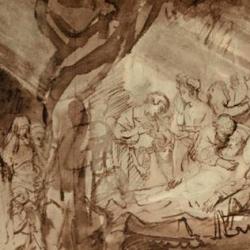Harnack described Marcion’s main impulses as follows: “The innovations of Marcion are unmistakable. The way in which he attempted to sever Christianity from the Old Testament was a bold stroke which demanded the sacrifice of the dearest possession of Christianity as a religion, viz., the belief that the God of creation is also the God of redemption. And yet this innovation was partly caused by a religious conviction, the origin of which must be sought not in heathenism, but on Old Testament and Christian soil. For the bold Anti-judaist was the disciple of a Jewish thinker, Paul, and the origin of Marcion’s antinomianism may be ultimately found in the prophets. It will always be the glory of Marcion in the early history of the Church that he, the born heathen, could appreciate the religious criticism of the Old Testament religion as formerly exercised by Paul. The antinomianism of Marcion was ultimately based on the strength of his religious feeling, on his personal religion as contrasted with all statutory religion That was also its basis in the case of the prophets and of Paul, only the statutory religion which was felt to be a burden and a fetter was different in each case. As regards the prophets, it was the outer sacrificial worship, and the deliverance was the idea of Jehovah’s righteousness. In the case of Paul, it was the pharisaic treatment of the law, and the deliverance was righteousness by faith. To Marcion it was the sum of all that the past had described as a revelation of God: only what Christ had given him was of real value to him. In this conviction he founded a Church: Before him there was no such thing in the sense of a community, firmly united by a fixed conviction, harmoniously organized, and spread over the whole world. Such a Church the Apostle Paul had in his mind’s eye, but he was not able to realize it. That in the century of the great mixture of religion the greatest apparent paradox was actually realized: namely, a Paulinism with two Gods and without the Old Testament; and that this form of Christianity first resulted in a church which was based not only on intelligible words, but on a definite conception of the essence of Christianity as a religion, seems to be the greatest riddle which the earliest history of Christianity presents. But it only seems so. The Greek, whose mind was filled with certain fundamental features of the Pauline Gospel (law and grace), who was therefore convinced that in all respects the truth was there, and who on that account took pains to comprehend the real sense of Paul’s statements, could hardly reach any other results than those of Marcion. The history of Pauline theology in the Church, a history first of silence, then of artificial interpretation, speaks loudly enough. And had not Paul really separated Christianity as religion from Judaism and the Old Testament? Must it not have seemed an inconceivable inconsistency, if he had clung to the special national relation of Christianity to the Jewish people, and if he had taught a view of history in which for paedagogic reasons indeed, the Father of mercies and God of all comfort had appeared as one so entirely different?”















